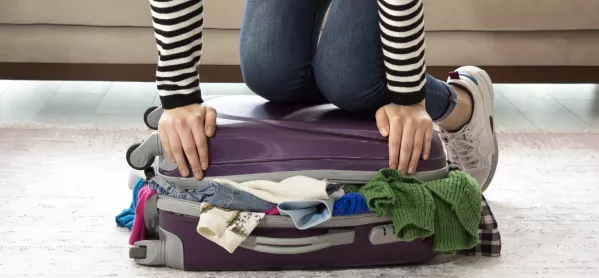Students who finish strongly in exam years will suffer this time around, teachers fear.
Scottish teachers have laid bare the numerous challenges and pressures they face following the cancellation of exams amid the coronavirus crisis.
The teachers - who took part in focus groups with the MSPs who sit on the Scottish Parliament’s Education and Skills Committee - shared their thoughts on the new system for grading pupils put in place by the Scottish Qualifications Authority (SQA), for which grades estimated by teachers will be a critical factor.
Background: Exam body to be questioned by MSPs
Latest SQA guidance: New statement on Scottish qualifications
Teachers’ worries: SQA responds to concerns about new system for grading
Swinney: Grade system ‘is fair’
Coronavirus: ‘Cancel next year’s exams,’ says teaching union
Opinion: ‘It’s impossible to meet the SQA grading demands’
The SQA - which is due to appear before the Education and Skills Committee today - has said in its guidance that estimates should be based on students’ “demonstrated and inferred attainment”, but one teacher asked for “more definition and clarity of inferred attainment”.
The teachers said “many students” were concerned their attainment would not be “as high based on estimates”.
Coronavirus: The difficulty of predicting students’ grades
Students who would almost certainly suffer this year were those who would have crammed ahead of exams and “pull[ed] it out the bag”, said teachers.
This is echoed in a paper prepared by the Scottish Parliament Information Centre (Spice) for this morning’s evidence session with the SQA, which says that those who would “either have exceeded expectations or whose work means that it is difficult to evidence a higher grade may pose a difficulty for teachers”.
It also stresses that the new system is “likely to benefit those candidates that perform well throughout the year but, for whatever reason, would not have performed as expected on the day of an exam”.
One teacher said: “There are going to be some pupils who fall through the net - the ones who ‘pull it out the bag’ for the final exam but for whom there is little or no prior hard evidence for this.”
Another teacher who wrote to the committee said: “Some pupils leave studying to the last minute and will perform well on the day. It is difficult for teachers to estimate this as there might not be corresponding evidence through the year to support it.”
That teacher gave the example of one National 5 modern studies student who went from a D in his preliminary exam to a highest-level A in the final exam.
The teachers also talked about the difficulty of estimating grades when much of the attainment evidence for students was either lying inside locked school buildings or had already been sent to examiners.
They also highlighted additional pressure they were under from parents, with some parents sending them evidence from private tutors in the hope it would be considered.
A poll of the teachers in one focus group showed that most were not confident the estimates they provided to the SQA would be reflected in the final results.
One teacher suggested that in small schools and communities, where teachers know all the parents, pressure is more pronounced. Another said their local authority was processing all requests for teacher estimates from families through freedom of information legislation; another teacher said all such requests had to be forwarded to the headteacher.
Some teachers said they had received no guidance on how to respond to requests from parents for their estimated grades.
The EIS teaching union has said teacher estimates must “absolutely not” be shared with families, “to prevent undue pressure on teachers”.




